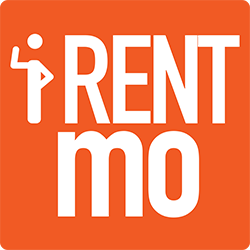Your team rely on PCs to get their work done and providing them with up-to-date and well-maintained machines are key in boosting productivity. But the underlying cost can be a big burden on your OPEX. That’s why leasing PCs/laptops can give your business both increased productivity and cost-relief.
Have you heard of PC as a service (PCaaS) business model? It’s a super convenient way for organizations to manage their device lifecycle without breaking the bank. PC-as-a-service or PCaaS is a popular business model for managing device lifecycle management. Basically, you pay a monthly subscription fee to lease endpoint hardware and management services from a vendor. This means you don’t have to worry about purchasing, managing, retiring or refreshing PCs – it’s all taken care of for you!
The best part is that PCaaS follows an Opex model, which means you pay a monthly rate to use a vendor’s devices and services. This saves you a ton of money on the costs of purchasing hardware for your team to work with. Plus, the vendor’s services can include configuration, help desk support, data backup and recovery, and asset management – all of which are super helpful.
Why should you consider a PC as a service (PCaaS) model for your organization?
Well, there are several potential benefits that you should know about!
1. Scalability
Firstly, PCaaS can help you scale up or down easily. Let’s say your IT department needs more PCs for a specific period – you can lease more devices in that month and decrease the number of devices you lease in another month. If you cut down the number of workers, you can simply reduce the number of devices you lease from the vendor. However, lease terms may lock you into leasing devices for a specific amount of time.
2. Flexible
Another great benefit is that PCaaS can help you keep up with changing technology. With the PCaaS model, you can trade in devices for endpoint hardware at the end of the lease, instead of being stuck with aging PCs.
3. Sustainable
PC as a service also shifts device lifecycle management responsibilities and device maintenance and repairs to the vendor, which means that IT can offload many of its endpoint management responsibilities. This may also help reduce costs by canceling an existing service contract purchased through a reseller.
4. Managed Cash Flow
PCaaS is also a great option for startup organizations with a limited budget. Instead of making a large upfront investment in hardware, these organizations can pay a monthly fee for a hardware subscription.
5. Save on Maintenance costs
Some vendors often include predictive analytics to help combat hardware failures and security policy violations. They can even boost security further by inventorying devices and tracking their locations and status. And the best part? You can pick the maintenance contract that best fits your needs, whether that’s a fully managed arrangement or a hybrid approach where your internal IT department manages some aspects of the device deployment.
Overall, PCaaS can be a great option for organizations looking for flexibility, scalability, and offloading some device management responsibilities. However, it is important to weigh the benefits and drawbacks to see if it is the right fit for your organization.
References:



